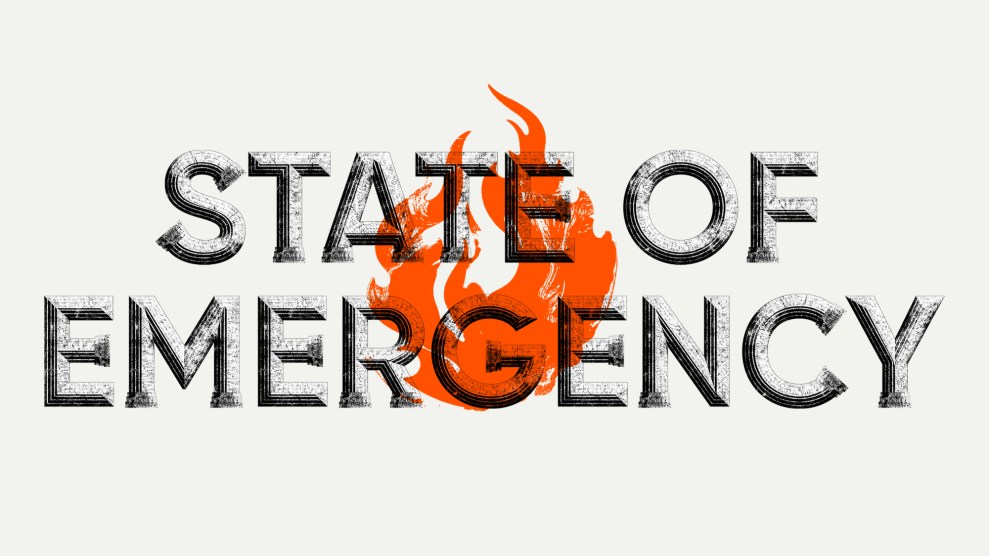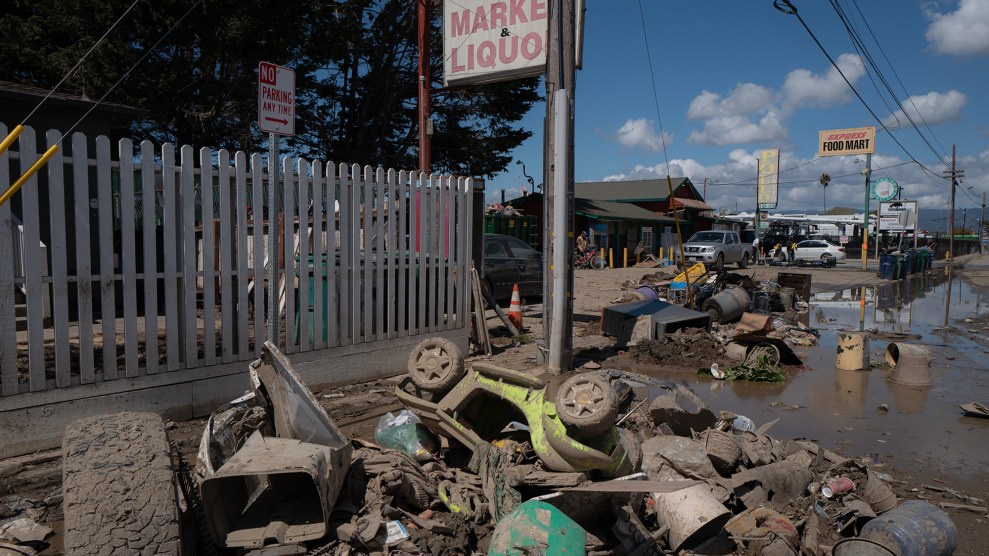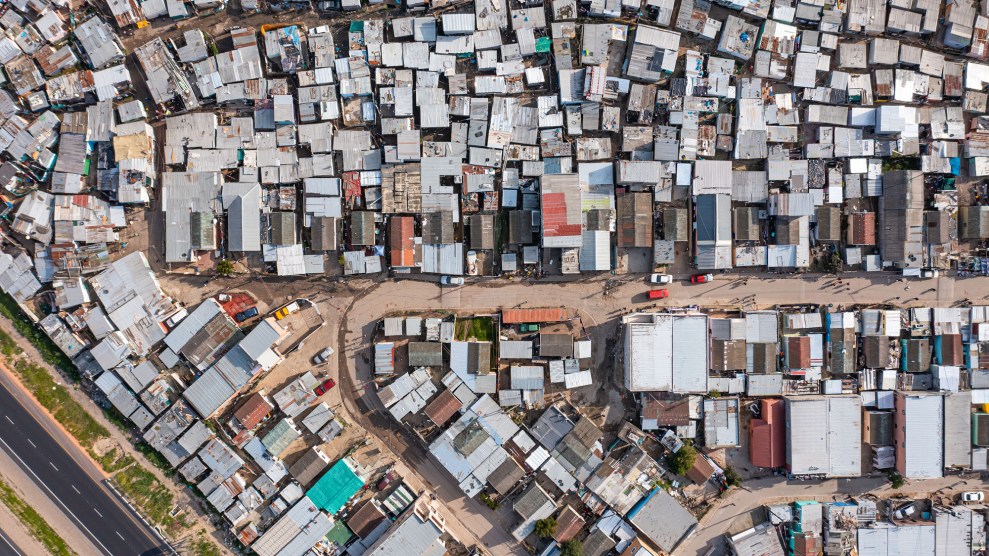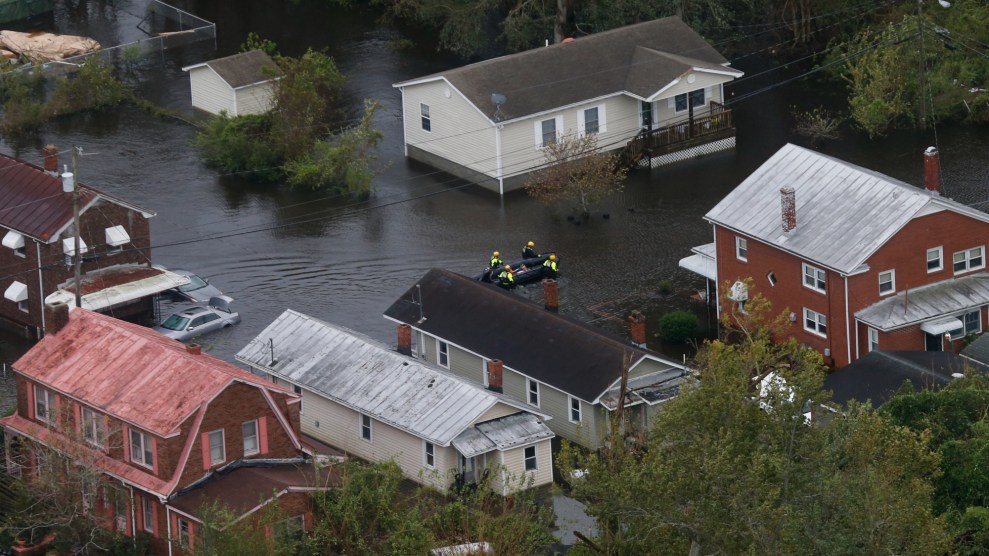
Steven Wilson
In early 2023, California Gov. Gavin Newsom declared a “state of emergency” after multiple “atmospheric river systems” slammed the state. The storms flooded highways, caused mudslides, and toppled trees. Newsom’s declaration expedited the response. Police evacuated some senior citizens from parts of the East Bay. Counties and cities distributed sandbags. Crews erected walls to prevent flooding.
But while this disruption to everyday life certainly looked like an emergency, such catastrophes are now commonplace, especially in California. Annual wildfire season is peaking earlier and ending later. Winter storms packed the Sierra Nevada with three times the usual snow. Somehow, everything is a crisis but also the crises never stop; in fact, the consistency of calamity exacerbates each disaster.
As we face a future warped by climate change, it’s worth asking: What does it mean if we’re in a constant “state of emergency”?
In some ways, we already know. Presidents have declared more than 70 national emergencies over the years; 41 remain active—the oldest being Jimmy Carter’s 1979 freezing of Iranian assets in the United States. A “state of emergency” is a perpetual hum in the background, albeit one that suspends normal procedures. It has an authoritarian potential. In 1950, President Harry S. Truman declared one of the first national states of emergency to fight “the increasing menace” of communism. North Korea had invaded South Korea, and Truman needed to boost military readiness, but without the pesky requirement of a congressional declaration of war. “I just had to act as commander in chief,” he said, “and I did.” (Truman’s national emergency remained in effect after the conflict technically ended.)
Lawmakers who want expanded powers find backing in philosopher John Locke, who argued that crises require governments to circumnavigate the shortcomings of existing laws. A “state of emergency” means we consent to a bit of dictatorial power in the name of protecting order.
On the left, it has often been noted that emergency powers can be used for ill. In 2007, Naomi Klein famously argued in The Shock Doctrine that crises allow capitalists to entrench policies without proper scrutiny. Historian Mike Davis, in his 1995 essay “The Case for Letting Malibu Burn,” showed that these crises reify class and social inequality—he outlines the egregious disparities of Los Angeles’ fire response, during which rich enclaves were given resources but “scandalously little attention” was “paid to the man-made and remediable fire crisis of the inner city.”
As Davis made clear, how we respond to an emergency, and what we define as one, can show what our leaders deem as urgently in need of protection—and what they don’t. One only has to look back at the rain in California. Officials recognized for decades the Pajaro River levee in Monterey County was flawed, but never made the repairs. By the time the levee was an “emergency,” it was too late and the Pajaro flooded surrounding towns and fields, causing the evacuation of about 2,000 people.
A “state of emergency” can serve as a stopgap to help clean up. But it limits political action to reaction. When Gov. Newsom expanded his declaration to secure more federal aid, he invoked the language of “rebuild and recover”—coding the declaration with a hope that veers into naivete. Congress still has not updated the Federal Emergency Management Agency standards with current data, mapped certain high-risk zones, or accounted for new stormwater flooding risks. Can we prepare? New Orleans suffered catastrophic damage after Hurricane Katrina in 2005, as did Houston from 2017’s Harvey, and Lake Charles, Louisiana, from severe storms in 2020 and 2021. All of these supposedly “once in a lifetime” weather events caused oversize damage because of what we don’t call an emergency: housing shortages, racism, flood insurance failure, debt, infrastructure decay, poverty.
One cliche line about the pandemic rings true for all politics of disaster: It deepened the problems we already knew existed. To fix those will require more than a never-ending emergency.















